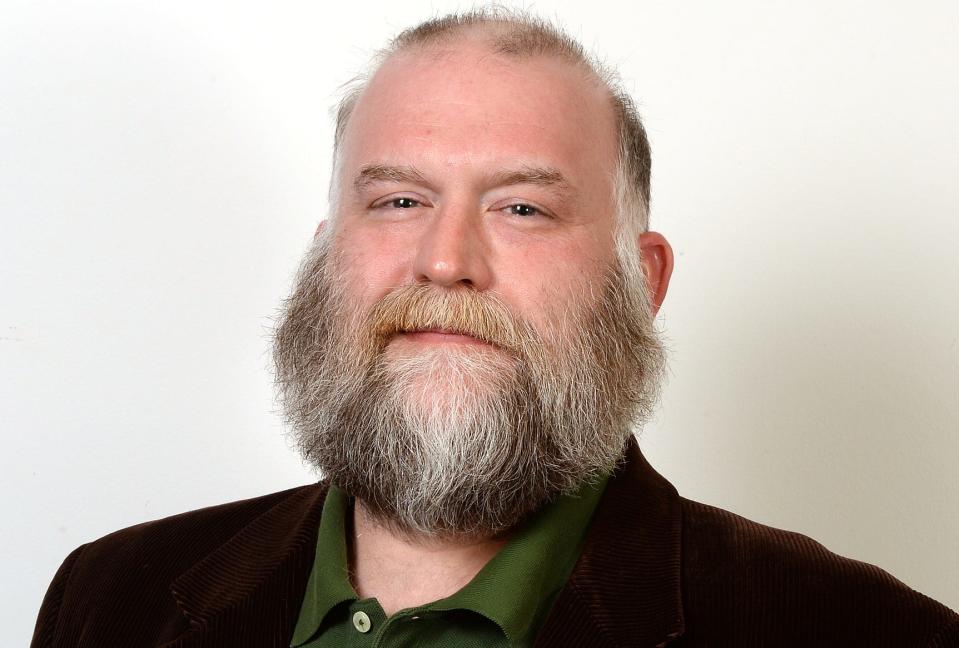David Murdock Column: On wee bits of wit and wisdom
Several times over the years, I’ve mentioned my love of quotes, proverbs, aphorisms, maxims, adages and axioms. There’s just something appealing in little pearls of wit and wisdom polished into a memorable sentence. It might explain my love of poetry as well, especially short lyric poems.
So, when I stumbled across a description of a new book by Kevin Kelly titled “Excellent Advice for Living,” it didn’t take too long for that book to make it to my house. I’d never heard of Kelly, but I gobbled his book down less than 12 hours after it got here — that has to be a new record.

It’s … not bad at all. However, had I found it in a bookstore, I’d likely not have bought it. It’s not that it’s poorly written or the advice is not, in fact, excellent, it’s that I’ve heard most of it somewhere else. That’s OK, though, if the writer presents that advice in a particularly memorable way. I’m not sure Kelly has. There are a few gems, though.
First, I’ll let Kelly set it up himself — in his introduction he explains that he started writing down these bits of advice for his “young adult children” when he turned 68, and continued the tradition on succeeding birthdays. He explains, “I am primarily channeling the wisdom of the ages,” going on to say that “I doubt any of it is truly original.” Well, nothing really is, so there’s no problem there.
Here’s a good example: “You should demand extraordinary evidence in order to believe extraordinary claims.” That’s good advice, but Carl Sagan said, “Extraordinary claims require extraordinary evidence” back in 1980, and the sentiment has been around longer than that. Sagan stated it in the most memorable formulation. His version is far “cleaner” and more memorable. \
Consider this extended one: “Be more generous than necessary. No one on their deathbed ever regretted giving too much away. There is no point in being the richest person in the cemetery.” However, the comedian Ed Wynn said much the same thing back in 1932: “I have no ambition to be the wealthiest man in the cemetery,” according to the website Quote Investigator. In fact, they have a whole page on the history of this sentiment — from its coinage, presumably by Wynn, to its use by Steve Jobs in the early 1990s.
Like I said, though, there are some pearls. I liked this one in particular: “A vacation + a disaster = an adventure.”
Another of Kelly’s sayings that seems to be wholly original is “It is the duty of a teacher to get everything out of a student, and the duty of a student to get everything out of a teacher.” When I saw it, it seemed familiar, but I can’t find it anywhere. Good advice!
Another of his pieces of advice was the topic of conversation between one of my friends and me a few weeks ago. We had talked about seeing your hometown as a tourist would. So, I was delighted when I saw Kelly’s observation, “Purchase the most recent tourist guidebook to your hometown or region. You’ll learn a lot by playing the tourist once a year.” Nicely put, and a common sentiment. Try a Google search for “tourist in your hometown” to see what I mean.
One that struck me has to do with a subject that has fascinated me lately: “The chief prevention against getting old is to remain astonished.” “Astonishment” or “wonder” or “awe” are subjects of deep interest to me. This quote seems to be one that has struck several people; it’s all over Google, attributed to Kelly. It’s also where I saw the book mentioned — on Maria Popova’s The Marginalian website, one of my favorites.
Now, the one thing that Kelly writes that will always stay with me are three simple words alone on a single page: Art before laundry.” I’m not sure whether Kelly means creating art or consuming art, but it really doesn’t matter — the extraordinary should always come before the ordinary, no questions asked.
By the way, the fact that there are a few pages in Kelly’s book that have only one or two sentences explains why I was able to zip through the book so quickly.
There is finally an awakening of scholarly interest in the “aphorism” as a literary form. The literary scholar Andrew Hui published “A Theory of the Aphorism: From Confucius to Twitter” back in 2019, for example, and I look forward to reading it. As Hui’s title suggests, aphorisms appear in all sorts of fields, from philosophy to popular culture, religion to poetry.
But it starts at home. Mom was the first person to interest me in aphorisms — she had all sorts of “homey” proverbs that covered so many life situations that she had learned from her mother. Hence, Mom referred to them as “Grandma Spencer’s Old Lettered Sayings.” It’s the word “lettered” that stands out — it means, according to Merriam-Webster’s, “learned,” “educated” or “cultured.”
It is the privilege of the old to educate the young with wee bits of wit and wisdom, no matter the source. As long as the wit and wisdom are remembered.
David Murdock is an English instructor at Gadsden State Community College. He can be contacted at murdockcolumn@yahoo.com. The opinions expressed are his own.
This article originally appeared on The Gadsden Times: David Murdock looks at pearls of wit and wisdom

